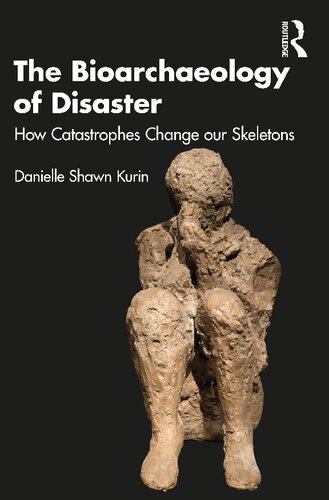

Most ebook files are in PDF format, so you can easily read them using various software such as Foxit Reader or directly on the Google Chrome browser.
Some ebook files are released by publishers in other formats such as .awz, .mobi, .epub, .fb2, etc. You may need to install specific software to read these formats on mobile/PC, such as Calibre.
Please read the tutorial at this link: https://ebookbell.com/faq
We offer FREE conversion to the popular formats you request; however, this may take some time. Therefore, right after payment, please email us, and we will try to provide the service as quickly as possible.
For some exceptional file formats or broken links (if any), please refrain from opening any disputes. Instead, email us first, and we will try to assist within a maximum of 6 hours.
EbookBell Team

5.0
20 reviewsThe Bioarchaeology of Disaster examines two dozen disasters occurring around the world over the past 2000 years, ranging from natural and environmental disasters to human conflict and warfare, from epidemics to those of social marginalization--all from a bioarchaeological and forensic anthropological perspective.
Each case study provides the social, cultural, historical and ecological context of the disaster and then analyzes evidence of human and related remains in order to better understand the identities of victims, the means, processes, and extent of deaths and injuries. The methods used by specialists to interpret evidence and disagreements among experts are also addressed. It will be helpful in understanding the circumstances of a range of disasters and the multidisciplinary ways in which bioarcheologists employ empirical methods and analytic frameworks to interpret their impacts and consequences.
The book is intended for those in the social and biological sciences, particularly archaeology, forensics, history and ethnography. It will also be of interest to those in medical history and epidemiology, ecological studies, and those involved in disaster response, law enforcement and human rights work.